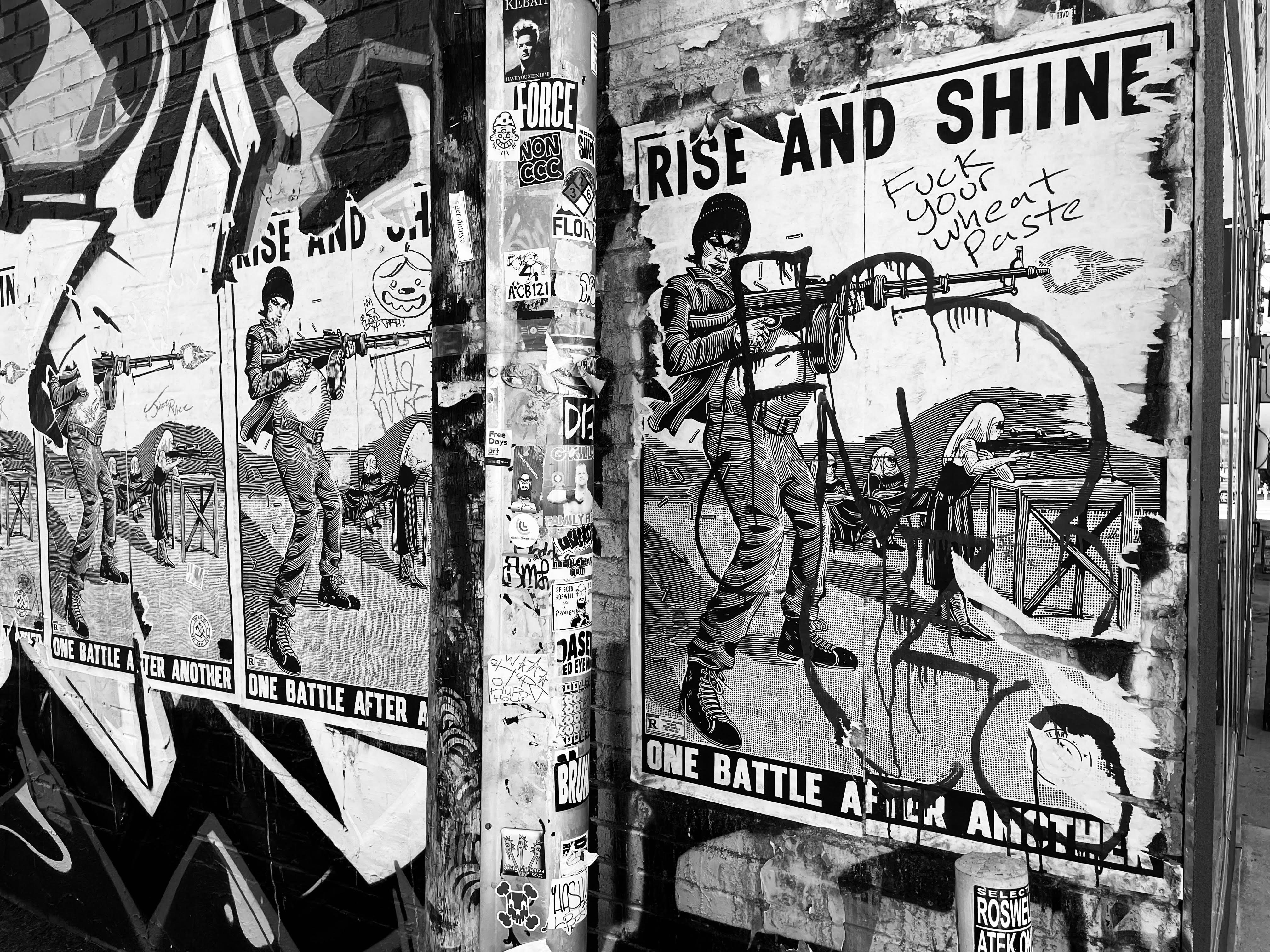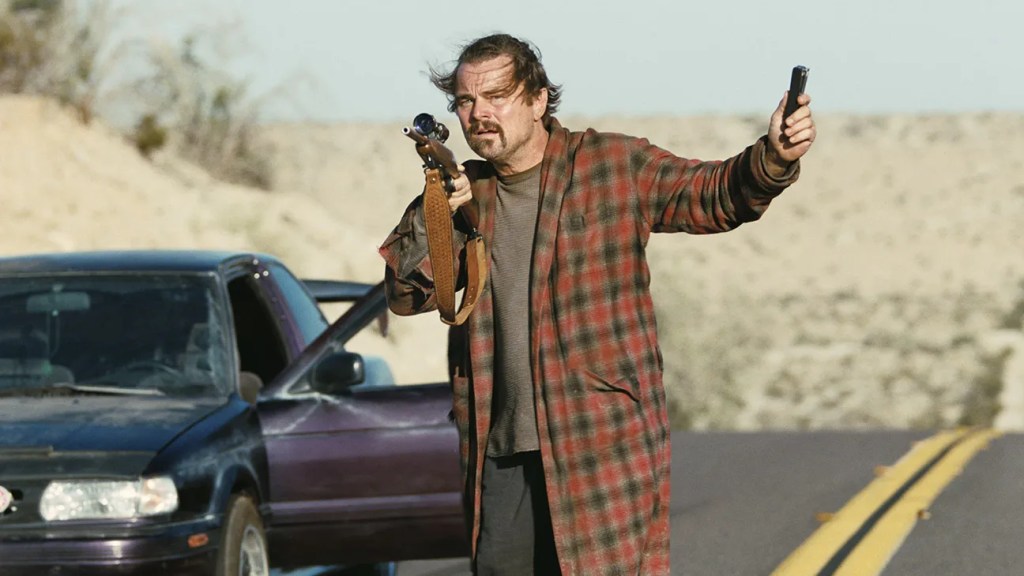
Jason Van Tatenhove

Audio By Carbonatix
I remember the day I walked away from my post as national media director of what was once America’s premier anti-government militia — a group now marching in lockstep with the authoritarianism it once swore to resist. Back then, we called ourselves watchdogs, defenders of the Constitution. But over time, the line between patriot and zealot blurred until it vanished.
My own line snapped one afternoon in a small-town grocery store, when I overheard a few core members — one of whom I’d known since Bundy Ranch — casually debating whether the Holocaust had really happened. That was it. I realized I’d become part of a story I could no longer tell truthfully.
I hadn’t grown up in a far-right household. If anything, I came from its opposite — raised to question authority, not worship it. I’ve always lived outside partisan labels, though I’ll admit to leaning left on matters of compassion and community. I still believe in the right to defend one’s family and neighbors, but violence should always be the last resort, never the first. Unfortunately, American history often blurs that distinction, too.
After I walked away, I traded rifles for notebooks, rallies for bedtime stories, and training manuals for D&D sessions. My revolution now has smaller, more sacred stakes: raising my daughters in a world coming apart at the seams. Their mother — my wife — passed too soon, and what’s left is this balancing act of teaching them to see clearly without letting fear consume them. I write dystopian fiction now — stories that reflect the choices I might have made when I was younger.
This is probably not what you expected to be a movie review. But to understand why One Battle After Another hit me so hard, you need that backstory.
Over the past few years, I’ve worked with institutions I never imagined being invited into during my militia days — the National Holocaust Museum (pre-October 7, 2023), Georgetown Law’s Institute for Constitutional Advocacy and Protection, alongside former national security attorney Mary McCord. From those conversations, one truth always surfaces: If we want to understand how we arrived at this fractured place, we have to look at the stories we’ve been telling ourselves.
We are, after all, a storytelling species. Since the first campfires, we’ve warned each other about monsters in the dark — tales meant to protect the tribe, to define “us” and “them.” The technology changed, but the wiring hasn’t. Today, our fires burn on screens, and the monsters wear suits.
That’s why I believe movies like One Battle After Another and A24’s Civil War matter. Film is the campfire where we gather to stare into the collective darkness — and maybe recognize ourselves in the shadows.
Lately, that darkness feels divided by ideology. The political right has its apocalyptic fantasies — movies like AmeriGEDDON or Angel Studios’ prepper sagas — where the “righteous few” mow down the hungry hordes outside their gates. Yet when the left explores the same terrain, with stories like Civil War or Paul Thomas Anderson’s One Battle After Another, critics cry propaganda. Apparently, it’s only patriotic if your hero hoards the bullets and prays to a white Jesus.

Leonardo DiCaprio gets back in the fight…for his daughter.
One Battle After Another
Both Civil War and One Battle After Another hit the same nerve, but from different angles. Civil War captured the chaos — that jittery documentary realism where the world collapses through a camera lens. I flashed back to my own photojournalism days covering the George Floyd protests and the wildfires that crept to Estes Park’s doorstep. The shutter clicks in that film — fading from color to black-and-white — sounded exactly like the heartbeat of a country turning on itself.
But One Battle After Another burrows deeper. Leonardo DiCaprio’s Zoid is a former revolutionary who walked away from the fight to raise his daughter. His wife leaves for Mexico. Years later, the world drags him back in. Watching him, I felt that old ache — the pull between duty to the cause and duty to family.
I recognized the exhaustion behind his eyes, that haunted calculation of what ideals are worth your child’s future. Like Zoid, I once thought I could build a better world through confrontation. Now I know the real fight is internal — the war between rage and grace, vengeance and love.
And yet, I can’t lie: the fire never fully goes out. Sometimes I wonder if the universe plugged me into that militia world a decade ago so I could one day understand how to build something better — a resistance that defends human equality and compassion rather than power and purity. If I ever built another army, it wouldn’t be men with rifles; it would be storytellers with conscience.
And much like Leo’s character in the film, if a Dr. Strangelove-esque Christian nationalist agent kidnapped my daughters, I can’t say I wouldn’t be tempted to respond in kind — if all else failed. Until that day, I’ll just keep writing.
That’s what One Battle After Another gets right. It’s not a call to arms — it’s a reckoning with what comes after the revolution, when the slogans fade and the children are watching. It’s about how easy it is to lose the plot when the story you thought would save you becomes the very thing that consumes you.
Zoid learns, as I have, that the hardest revolution isn’t fought with bullets or barricades. It’s fought in the quiet — in the heart, the home, and the stories we choose to pass down. And I will fight to raise my children in peace.
The battle never really ends. But if we can teach our children to question, to create and to care — maybe we win one, after all.